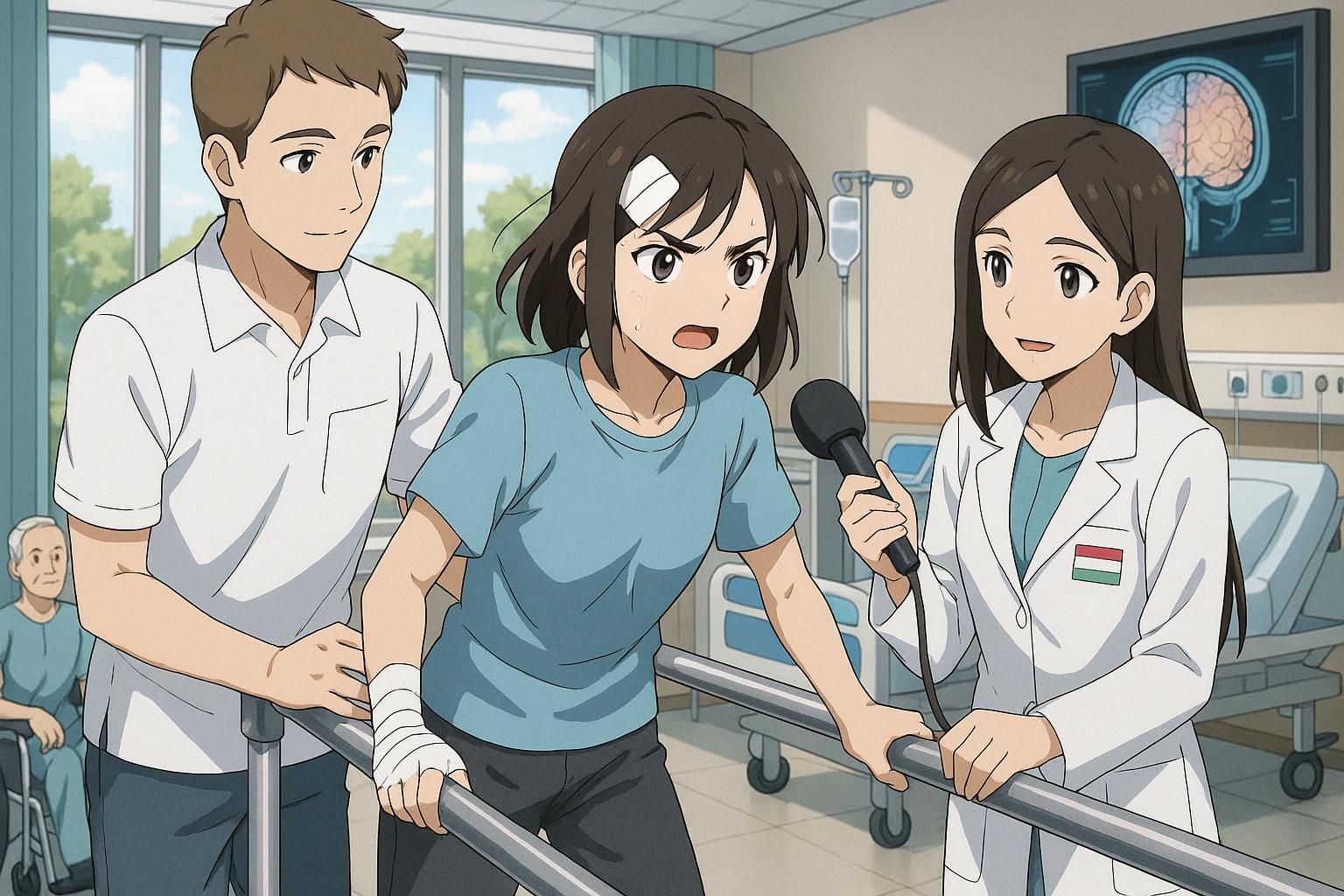A London teacher’s harrowing journey from a brain haemorrhage to recovery underscores the complexities of seeking medical treatment abroad amidst concerns about NHS care. Anna Chithrakala, 45, suffered a sudden brain bleed during a walk in December 2024, leaving her unable to speak, walk, or move her right side. After multiple surgeries at hospitals in the UK, her family characterised their experience as a "nightmare," ultimately leading them to seek help in Hungary.
Initially rushed to hospital, Anna underwent six hours of surgery but subsequently faced disheartening conditions at University Hospital Lewisham, where she reported bullying behaviour from nursing staff and noisy wards that hampered her recovery. “Everything was pessimistic,” Anna recalled in an interview, noting that her efforts to escape the hospital were met with mockery from staff.
Driven by a determination to ensure her daughter’s rehabilitation, Anna’s mother, Piroska Markus, discovered a specialised rehabilitation programme at a facility in Hungary. The family relied on a 1,100-mile drive to reach the hospital, which took two and a half days. In Hungary, Anna’s weekly therapy sessions cost approximately £500, significantly less than comparable private treatment options in the UK, which can run upwards of £5,000.
While the NHS does offer some support for rehabilitation, the reality is often stark. NHS guidelines suggest that patients may receive only a fraction of the therapy hours recommended for effective recovery upon discharge. Anna's experience underscores a recurring concern: the limitations of NHS services are leading more patients to seek alternatives abroad, a trend noted as “medical tourism.” This is particularly prevalent among individuals requiring specialised care, especially when the NHS cannot meet their urgent needs.
However, embarking on treatment overseas carries inherent risks. Patients are urged to conduct thorough research on the facilities and the qualifications of the medical staff, as well as ensuring that appropriate travel insurance is in place. The necessity of prior authorisation from the NHS for planned treatments abroad adds an additional layer of complexity.
Despite these challenges, Anna's early results in Hungary have been promising; she is regaining her ability to walk and talk after months of struggle. Her intensive rehabilitation regimen includes various therapies, from physiotherapy and speech therapy to music and robotics therapy. Family members report a stark difference in care philosophy, with more focus on an active recovery approach rather than the passive experiences they encountered in the UK.
Although Anna's treatment in Hungary appears to be yielding positive outcomes, the family is now facing financial strain. Their GoFundMe campaign, launched to support ongoing rehabilitation costs, reflects the reality many families encounter when navigating the healthcare system. The need for financial assistance for treatments not covered by the NHS is an emerging issue, as patient stories like Anna’s highlight the inadequacies within the system.
The NHS has publicly expressed concern about Anna's experience and encouraged her family to engage directly for a formal investigation into their complaints. Nonetheless, her case sheds light on broader discussions about health and rehabilitation services in the UK and raises critical questions about accessibility and quality of care. As patients increasingly explore overseas options in search of better outcomes, the conversation about the NHS’s role and the future of healthcare in the UK remains vital and urgent.
The intersection of affordability, quality, and accessibility in healthcare continues to provoke significant debate. While Anna's story demonstrates both the potential benefits and drawbacks of seeking treatment abroad, it also underscores a pressing need for reform within the NHS to better serve patients facing critical health challenges.
Reference Map
- Paragraph 1: [1]
- Paragraph 2: [1]
- Paragraph 3: [1], [2]
- Paragraph 4: [2], [3]
- Paragraph 5: [3], [5]
- Paragraph 6: [1], [6]
- Paragraph 7: [1], [7]
- Paragraph 8: [1], [4]
- Paragraph 9: [1], [6]
Source: Noah Wire Services
